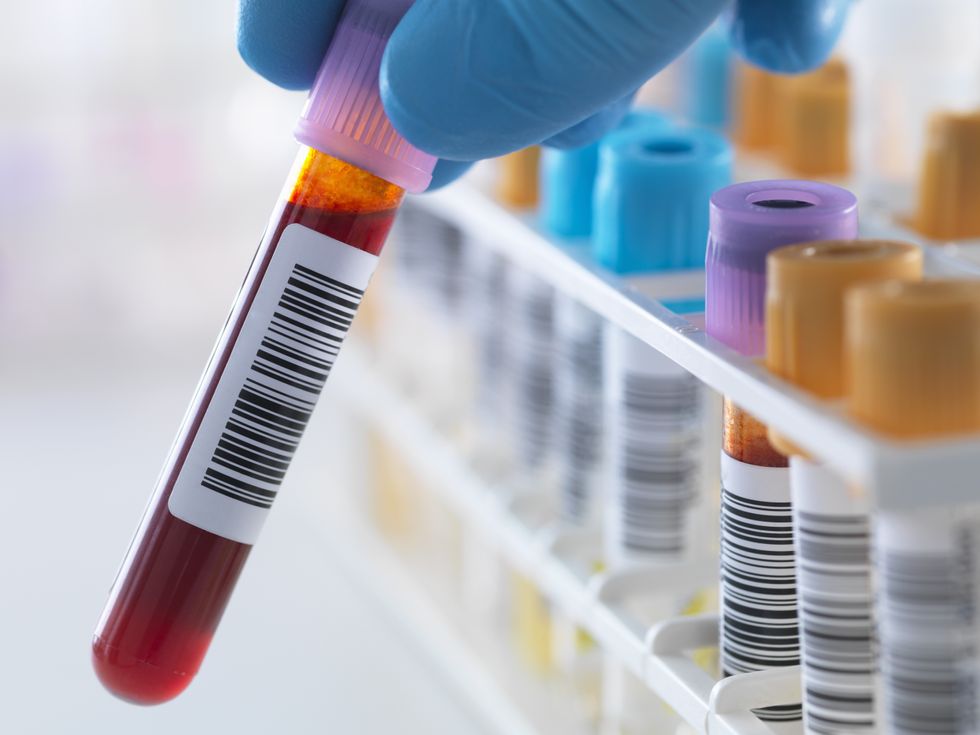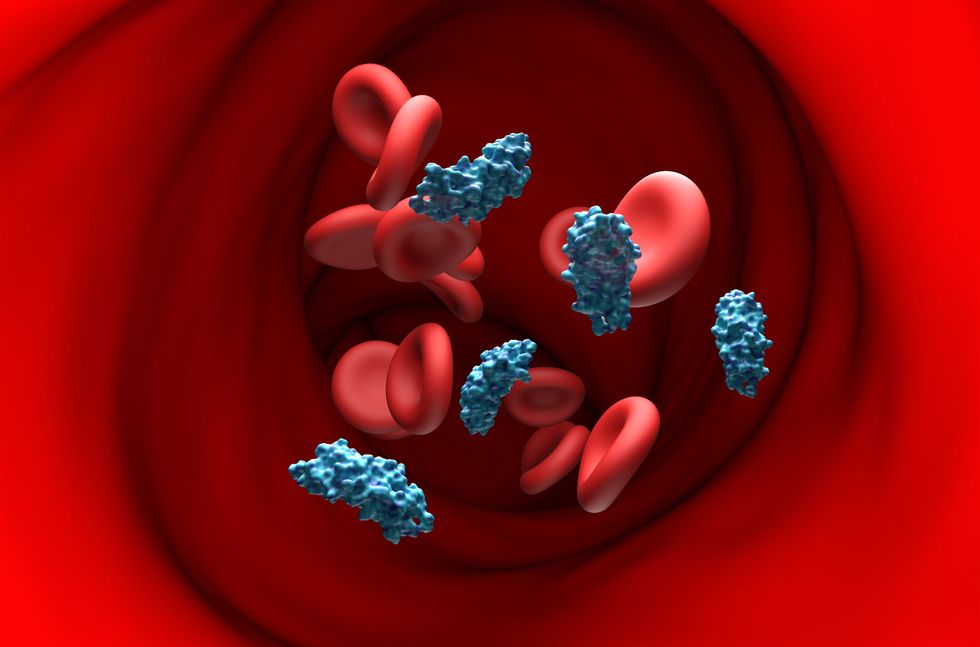Scientists have launched the world’s largest protein study, to analyze 300,000 blood samples from UK Biobank volunteers, in a groundbreaking project that could revolutionize the treatment of disease.
This ambitious research, supported by 14 pharmaceutical companies, aims to understand how proteins influence various diseases, potentially transforming healthcare by the end of this decade.
Professor Sir Rory Collins, chief executive of UK Biobank, highlighted the unprecedented scale of the project, saying “there is nothing of this scale anywhere else in the world”.
The volunteers, who joined the program in middle age, provided biological samples and continued access to their medical records.

A blood sample stored with a row of human samples for analytical testing
GETTY
A pilot project involving 50,000 people has already produced promising results, with researchers discovering “dozens and dozens” of new drug targets.
These targets include proteins that could be suppressed or promoted to fight diseases such as Parkinson’s disease, Alzheimer’s disease and schizophrenia.
Dr Whelan described the pilot project as “a treasure trove” of information.
Proteins make up the body’s molecular machinery and their role in disease is crucial but complex. Understanding which proteins are associated with specific diseases could help doctors detect conditions earlier and identify potential treatments.
One of the interesting findings of the pilot study was the identification of different subtypes of depression, which could allow for more targeted treatments.
Dr. Whelan explained that some people might have depression primarily driven by inflammatory proteins, while others might have a subtype heavily influenced by metabolic proteins.
This advance in understanding depression subtypes demonstrates how protein analysis could lead to more personalized medical approaches.
The discovery highlights the project’s potential to revolutionize the way we understand and treat various conditions through detailed protein analysis.
Professor Sir Rory Collins explained that technological advances have made this large-scale protein analysis possible, in the same way that the costs of DNA sequencing have fallen dramatically.
“We’ve gone from being excited about genetics to getting excited about proteins,” he said. “Technology has evolved.”
Since the UK Biobank began collecting samples 15 years ago, the costs of DNA sequencing have fallen a hundredfold, enabling genome analysis of all half a million people. samples.
The same technological advances now allow scientists to track 5,400 proteins in blood samples efficiently and cost-effectively.
Although supported by 14 pharmaceutical companies, the research will be accessible to academics, making it a unique collaborative effort.
Professor Claudia Langenberg of Queen Mary University of London called the project “groundbreaking” for the study of less common diseases.
“The more we measure, the more precise information we can have to study about diseases,” she explained.

Illustration of apolipoprotein-E4 molecules (blue Apo-E4) in a blood vessel containing red blood cells (red)
GETTY
She highlighted potential advances in various pathologies, saying: “For thousands of diseases, we have no existing prediction or prognosis model and all of this will change. Polycystic ovarian syndrome, motor neuron disease, specific cancers – kidney, liver, bone. In all of these areas, we will make significant progress.
The research could lead to more targeted and effective health care interventions in a variety of conditions.
Scientists suggest this could allow better screening of people whose protein signatures indicate a higher risk of colorectal cancer.
The findings could also help identify people who would benefit from earlier treatment with statins for heart disease prevention.
Professor Langenberg’s enthusiasm for the project’s potential was evident when she remarked: “I shouldn’t say this as a doctor, but I feel like a kid in a candy store.” »
